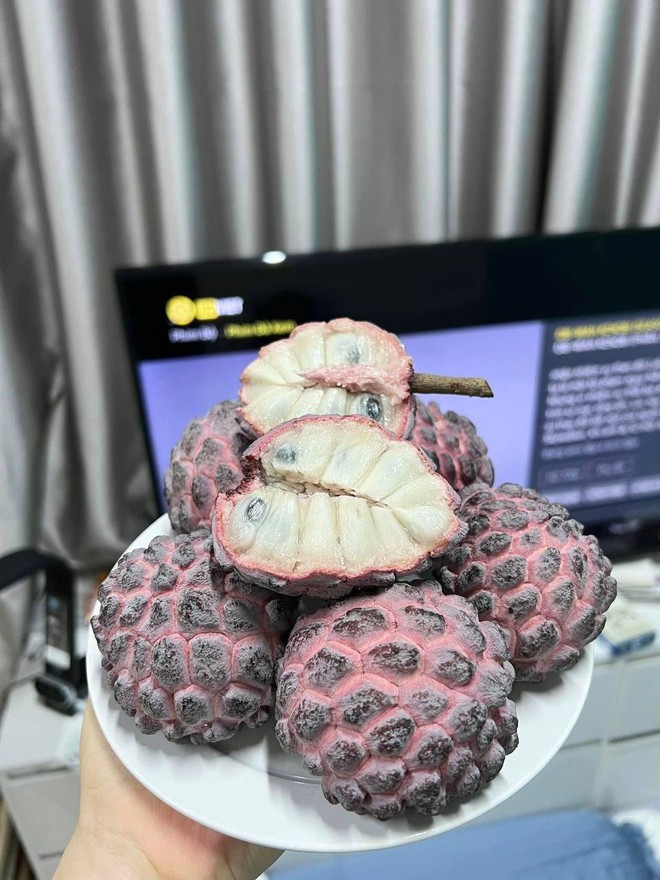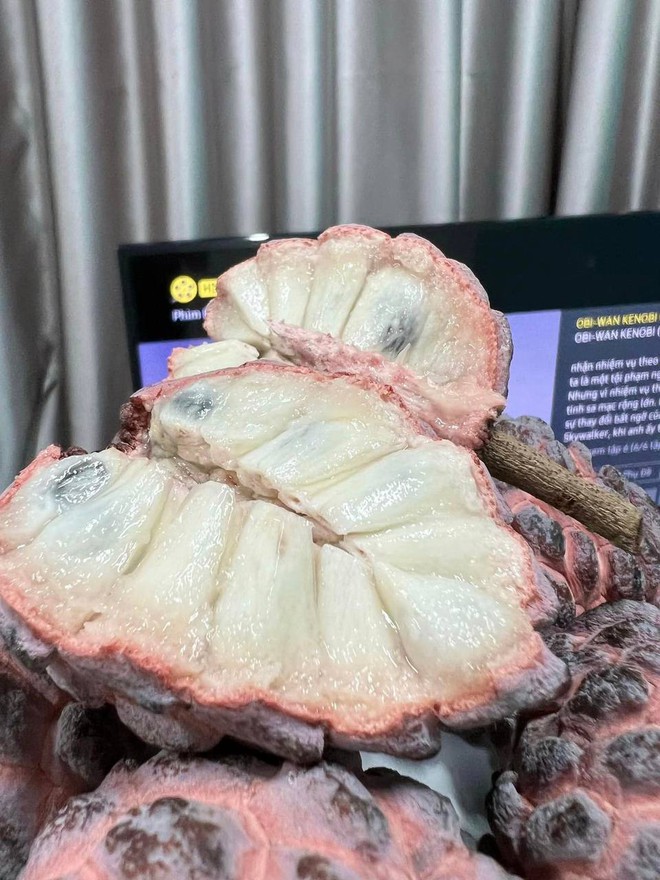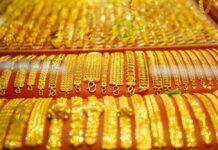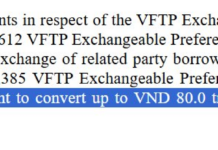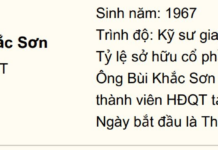Towards the end of June to September every year, a special fruit captures the attention of the people in Vietnam. This fruit has a round shape, a rough skin, and when ripe, reveals a sweet and fragrant white flesh that has everyone hooked. By now, many of you would have guessed that this fruit is none other than the beloved custard apple, also known as “na” in Vietnamese.
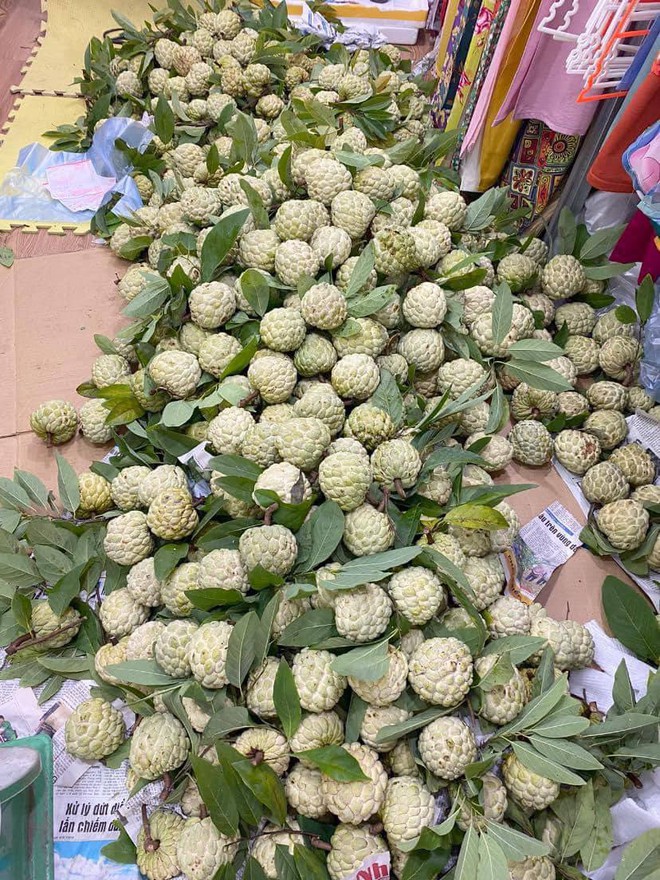
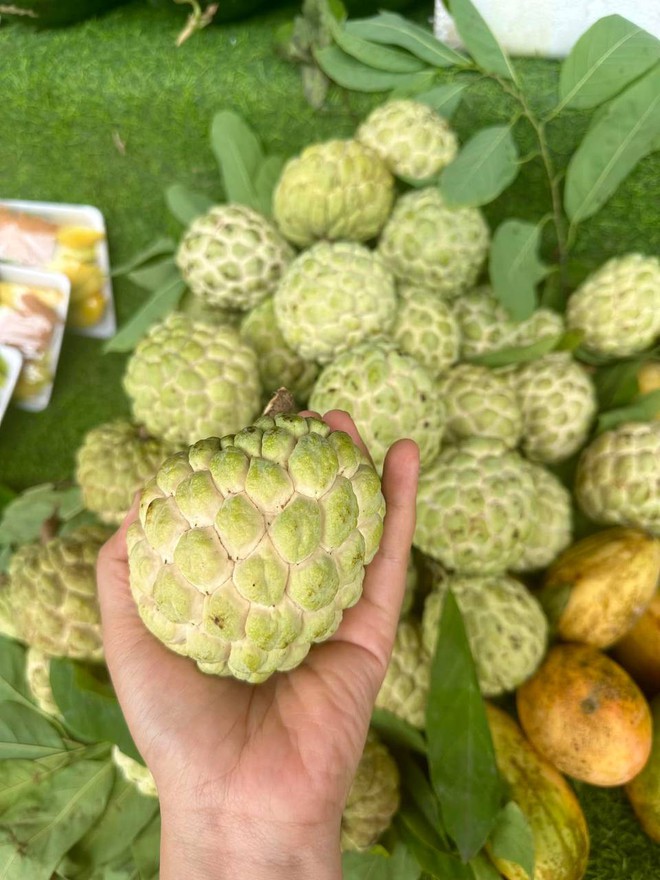
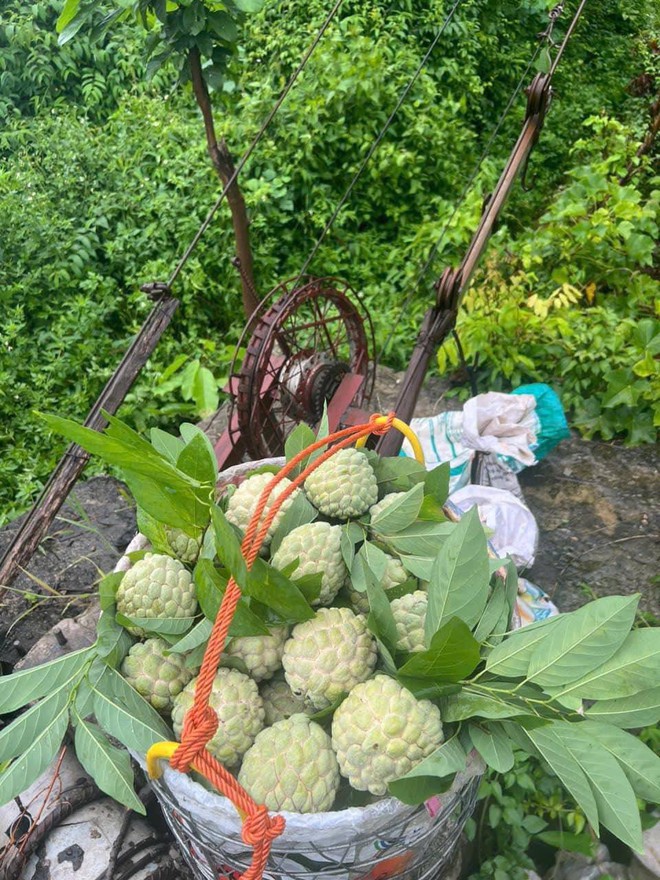
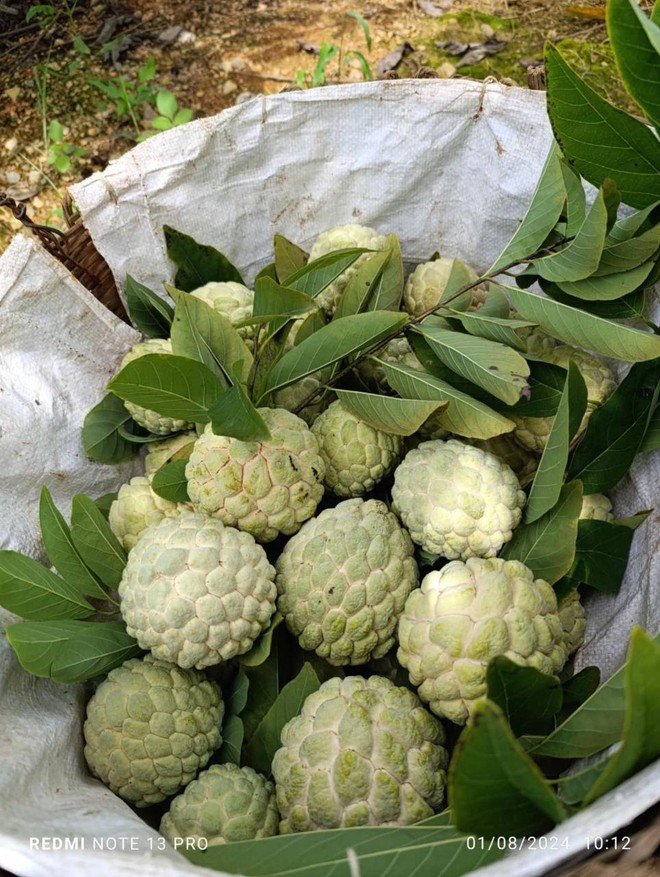
The custard apple, or “na”, is a round, large fruit with many seeds. When ripe, it boasts a white flesh and a sweet, delicate flavor. This tropical fruit is native to the Americas but has since been cultivated worldwide, including in Vietnam. With the season in full swing, you’ll find an abundance of these fragrant fruits at local markets and even online.
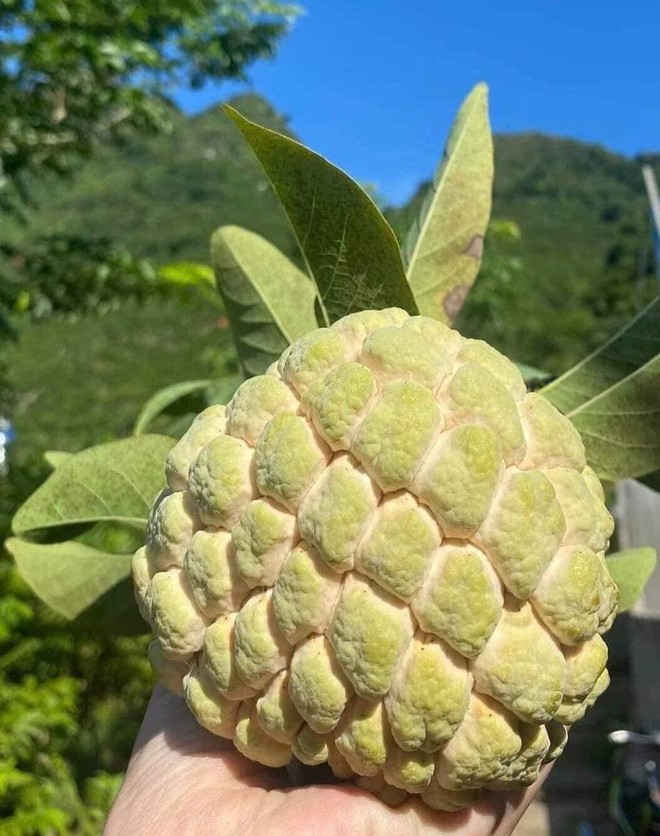
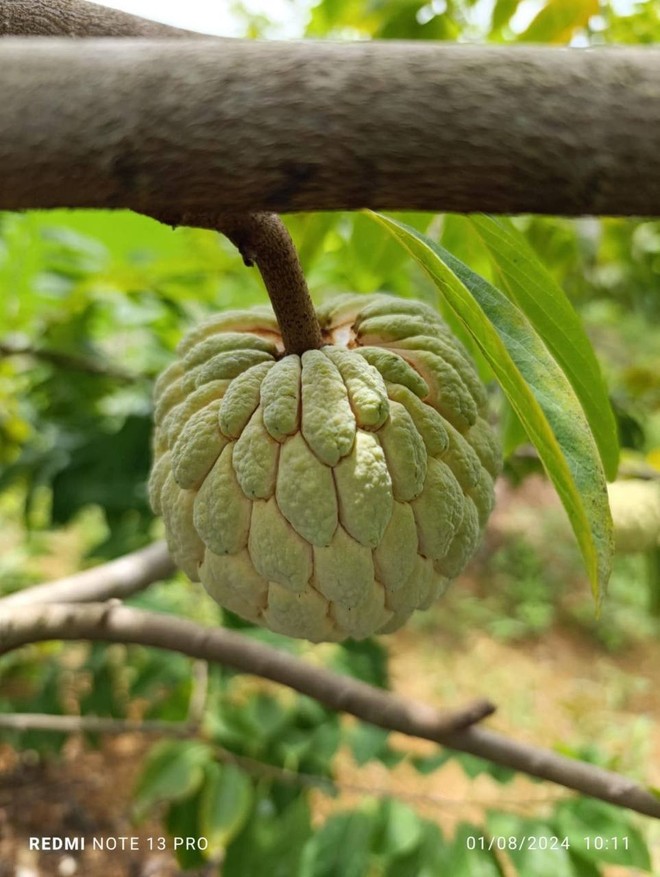
In Vietnam, there are two main varieties of custard apple: the fibrous custard apple and the soft custard apple. True to their names, the fibrous custard apple has a firm, chewy texture, while the soft custard apple has a softer, more tender flesh. The fibrous variety is preferred for its pleasant flavor and ease of storage. In contrast, the soft custard apple stands out for its sweeter taste and softer texture.
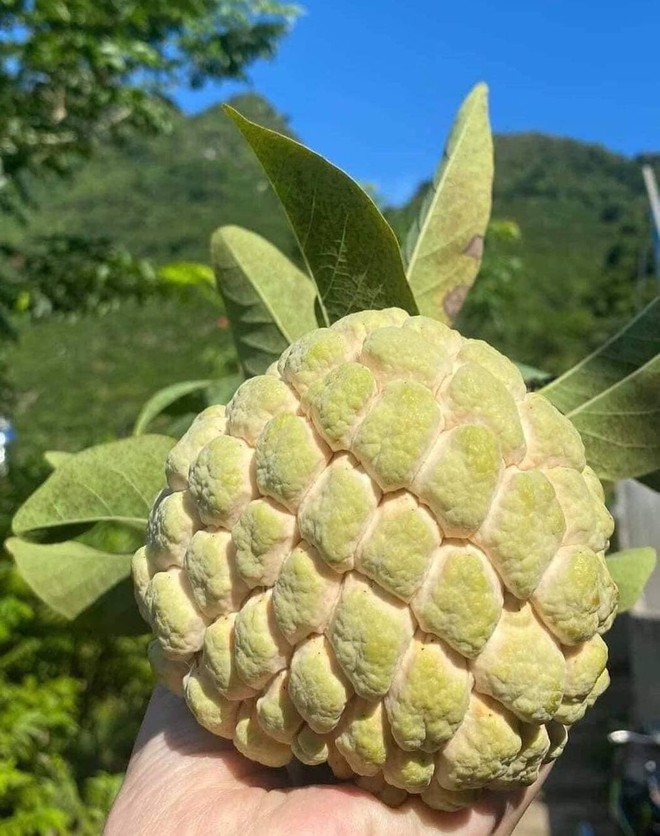
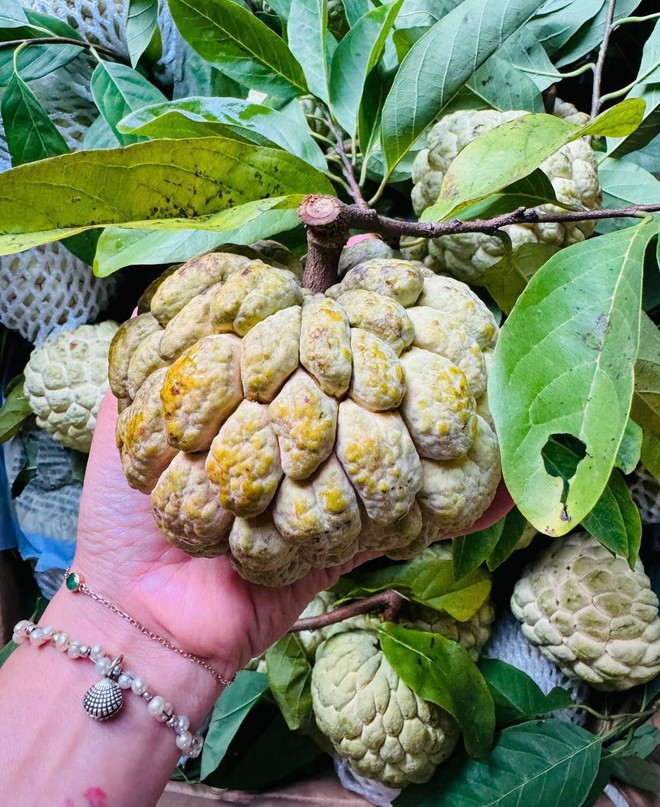
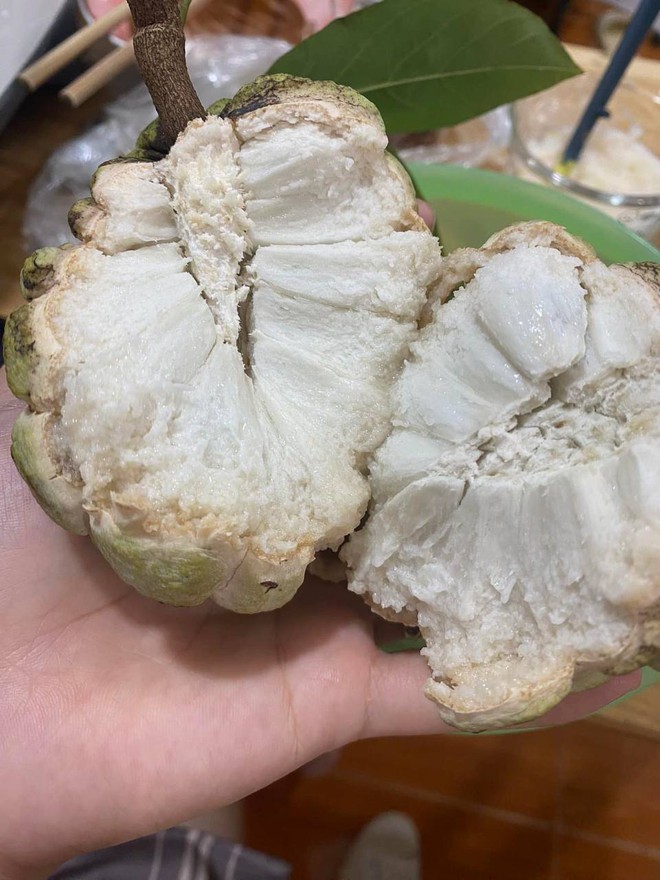
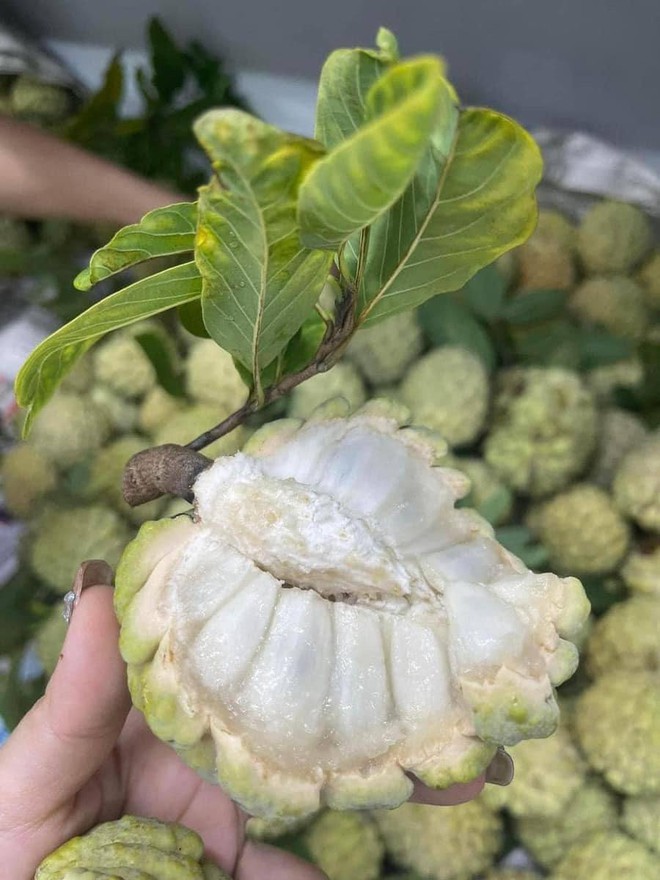
Fibrous Custard Apple (right) – Soft Custard Apple (left)
Once overlooked, now in high demand: Price surges to 200,000 VND/kg and still sells out
With the custard apple season in full swing, social media is abuzz with debates between fans of the fibrous and soft varieties. Many people prefer the fibrous custard apple and assume it would be more expensive. However, the market price for this variety is quite reasonable, ranging from 25,000 to 45,000 VND/kg. On the other hand, the soft custard apple commands a much higher price, selling for up to 200,000 VND/kg and often selling out. Specifically, the soft custard apple with 6-8 fruits/kg is priced at 90,000 – 110,000 VND/kg; the medium-sized variety with 4-5 fruits/kg goes for 140,000 – 160,000 VND/kg; and the VIP-sized fruit, which is larger and more attractive, fetches a price of 180,000 – 200,000 VND/kg.
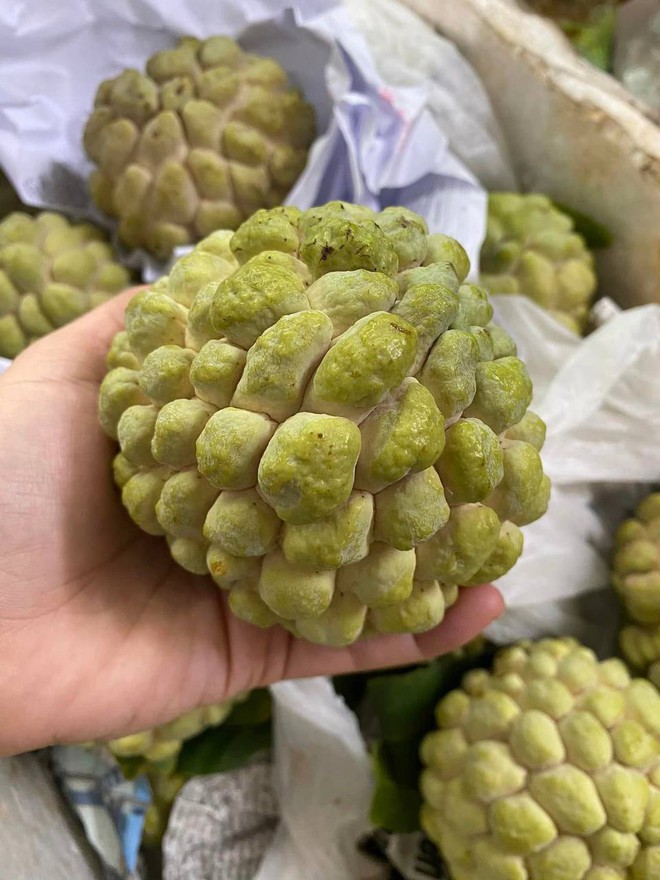
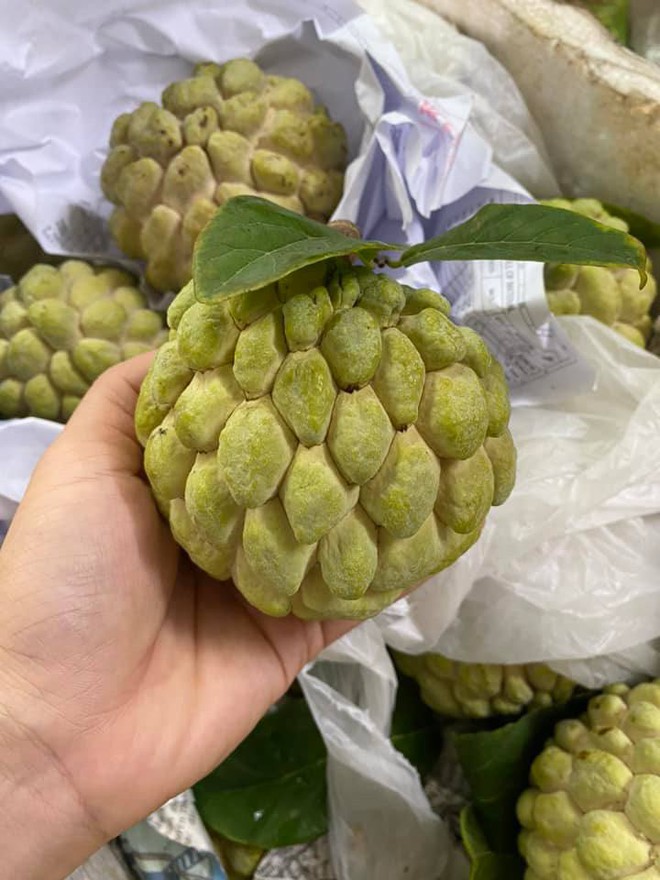
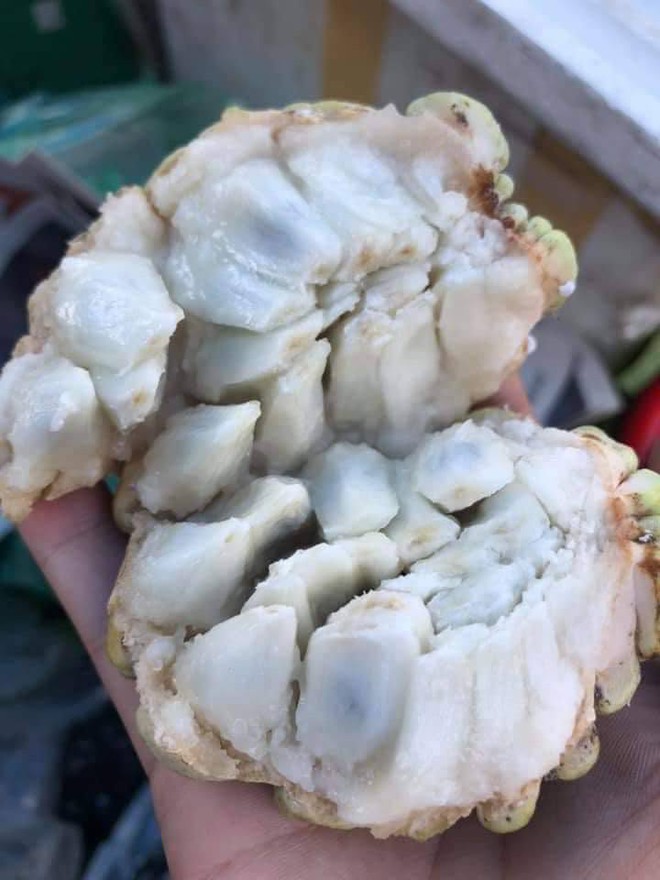
Soft Custard Apple from Lien Khe, Hai Phong (Photo: btmhuyen8586)
In the past, the soft custard apple didn’t receive much attention, but now it’s highly sought-after. Even at its current price, it’s more expensive than durian and some other imported luxury fruits. The soft custard apple’s sweet and delicate flesh is loved by many, and since it’s mainly grown in home gardens, supply can’t keep up with demand. Customers often have to place orders a month in advance, which further contributes to its high price.
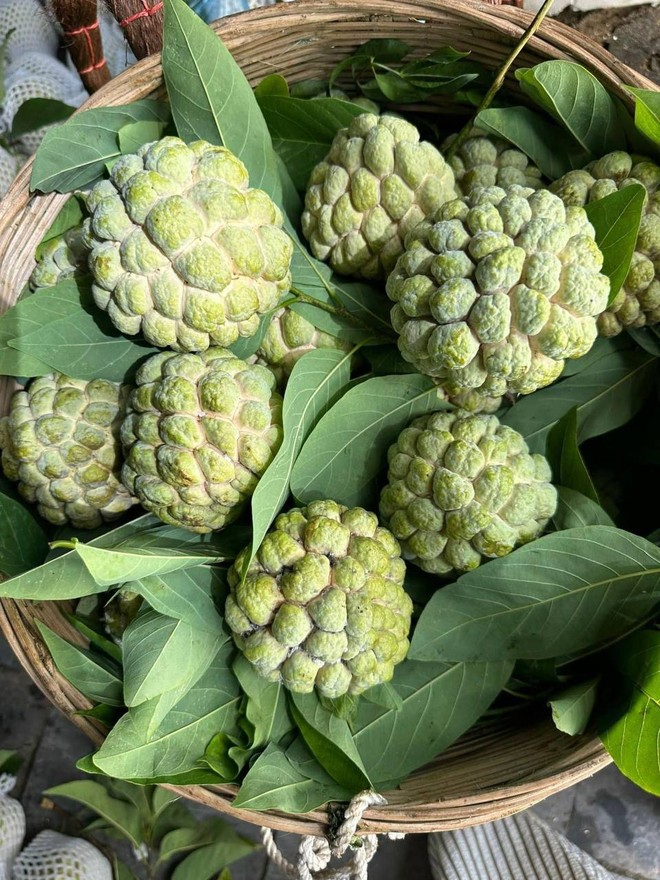
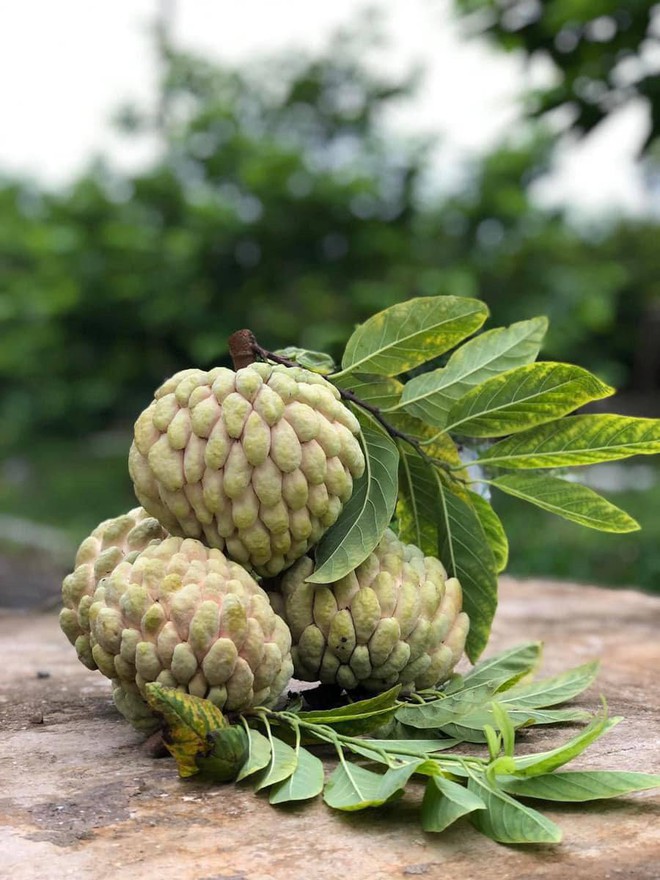
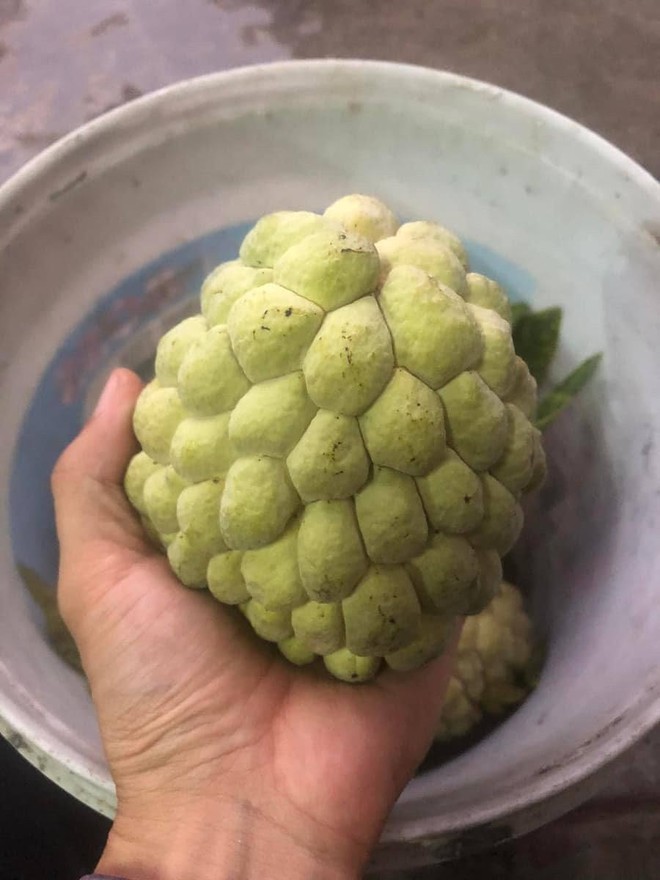
Not just delicious, custard apple is a “health god” too
Whether it’s the fibrous or soft variety, custard apples are a beloved fruit in Vietnam. They can be enjoyed fresh or turned into delicious desserts and smoothies. Moreover, custard apples are a “superfood” packed with nutrients and offering a plethora of health benefits, which is why they fly off the shelves during the season.
Custard apples are a rich source of natural vitamin C and contain essential nutrients such as antioxidants and minerals that boost immunity, promote glowing skin, and enhance overall well-being. Regular consumption of custard apples also supports heart health by reducing bad cholesterol levels in the body. If you’re dealing with a sore throat or an upset stomach, try eating a custard apple to ease those uncomfortable symptoms.
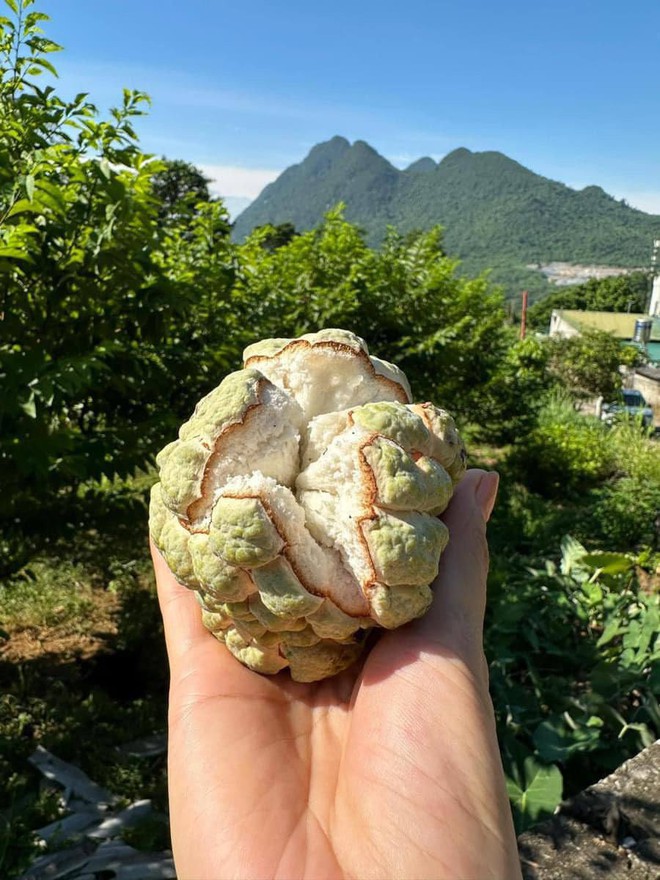
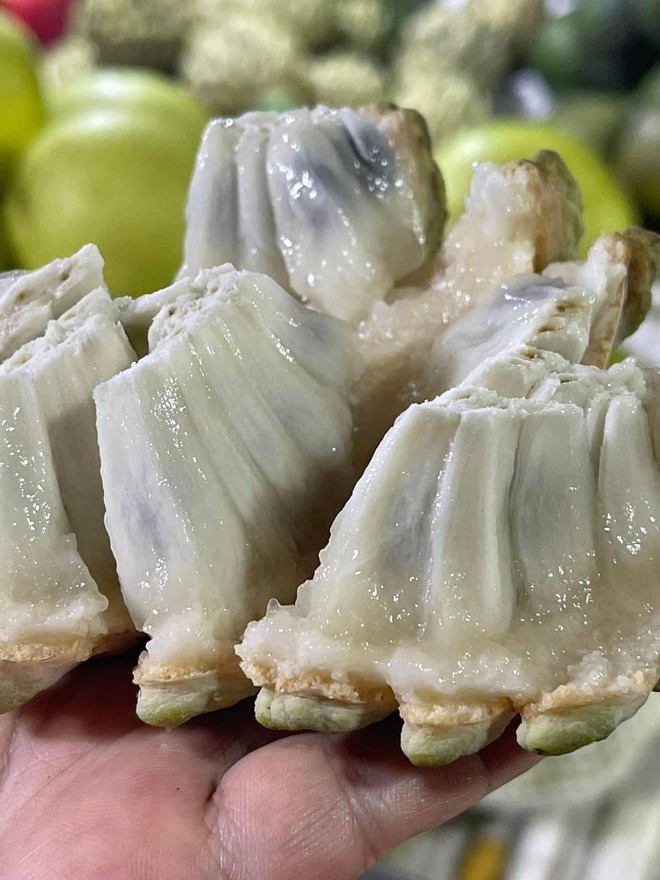
A medium-sized custard apple provides about one-fifth of the daily recommended intake of Vitamin C, making it a safe and abundant source of this essential nutrient.
Additionally, custard apples help improve heart function thanks to the balance of sodium and potassium in their flesh. The high antioxidant content combats harmful free radicals and cholesterol in the body. Vitamin B6 in custard apples regulates the neurotransmitter GABA, reducing stress and calming the nerves.
Custard apples are also rich in dietary fiber, which benefits the digestive system. They offer a range of other advantages, such as improving skin health, oral health, reducing fatigue, enhancing lung function, and alleviating leg numbness.
